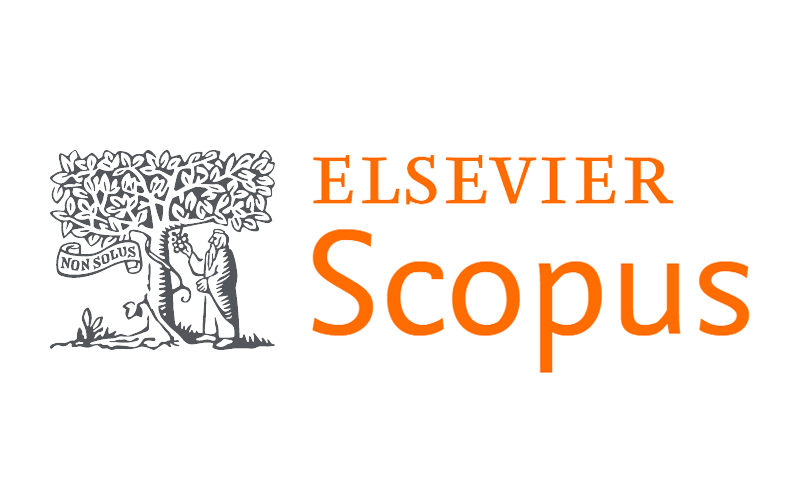Medicine and the Law
The leading causes of medico-legal claims and possible solutions
DOI:
https://doi.org/10.7196/SAMJ.2023.v113i4.134Keywords:
Medico-legal claims, Causes, SolutionsAbstract
Medico-legal claims in the South African health sector have markedly increased since approximately 2007. This is noteworthy as money spent on these claims from the public health budget, is money which should have been spent on the healthcare priorities identified in the National Department of Health Strategic Plan. As such, it becomes important to understand why these claims have shown drastic increases. This piece therefore discusses the causes of increased claims which include clinical errors, maladministration and mismanagement; the legal profession’s contribution to the problem; legal developments and patient awareness as well as some other additional causes. Possible solutions are also offered such as those related to the NDOH and National Core Standards and Ideal Clinic initiative quality of care standards; improving the healthcare system and quality of care; better distinguishing between valid and invalid or fraudulent claims, the possible role of fit-for-purpose legislation and a reconsideration of compensation methods.
References
SAnews.go.za. Plans to curb medico-legal claims. 26 February 2020. https://www.sanews.gov.za/south-africa/plans-curb-medico-legal-claims#:~:text=The%20National%20Treasury%20has%20unveiled,said%20claims%20had%20increased%20rapidly (accessed 1 August 2022).
Low M. Analysis: Is there a way out of SA’s medico-legal morass? 1 February 2022. https://www.spotlightnsp.co.za/2022/02/01/analysis-is-there-a-way-out-of-sas-medico-legal-morass/ (accessed 1 August 2022).
National Department of Health, South Africa. Strategic Plan 2020/21-2024/25. https://www.health.gov.za/wp-content/uploads/2020/11/depthealthstrategicplanfinal2020-21to2024-25-1.pdf (accessed 1 August 2022).
Thobega K. Gov’t faces P670M medical lawsuits. The Daily Sun, 20 April 2022. https://www.pressreader.com/botswana/the-midweek-sun/20220420/281487869899074 (accessed 1 August 2022).
Obu RN and Aggrey-Bluwey L. Ghana: Resolving the medical negligence quagmire in Ghana: Some suggested solutions. Ghanaian Times, 14 September 2021. https://allafrica.com/stories/202109170506.html#:~:text=There%20are%20increasing%20reports%20of,lost%20to%20payment%20of%20damages (accessed 1 August 2022).
Gausi W. Crackdown on doctors. The Times, 21 August 2021. https://times.mw/crackdown-on-doctors/ (accessed 1 August 2022).
Bateman C. Behind SA’s medical malpractice billions. Financial Mail, 9 December 2021. https://www.businesslive.co.za/fm/fm-fox/2021-12-09-behind-sas-medical-malpractice-billions/ (accessed 1 August 2022).
Pienaar L. Investigating the reasons behind the increase in medical negligence claims. PELJ/PER 2017; 19: 1-22. https://doi.org/10.17159/1727-3781/2016/v19i0a1101
Oosthuizen WT and Carstens P. Medical Malpractice: The extent, consequences and causes of the problem. THRHR 2015; 79:269-284.
South African Law Reform Commission. Discussion Paper 154, Project 141: Medico-legal claims. 11 November 2021. https://www.justice.gov.za/salrc/dpapers/dp154-prj141-Medico-Legal-Claims.pdf (accessed 1 August 2022).
MEC for Health, Eastern Cape v Mkhitha and Another (1221/2015) [2016] ZASCA 176 (25 November 2016).
Mbhele v MEC for Health for the Gauteng Province (355/2015) [2016] ZASCA 166 (18 November 2016).
Daniels v Minister of Defence 2016 (6) SA 561 (WCC).
South Africa. Road Accident Fund Act No. 19 of 2005. https://www.gov.za/documents/road-accident-fund-amendment-act-0 (accessed 1 August 2022).
South Africa. Contingency Fee Act No. 66 of 1997. https://www.gov.za/documents/road-accident-fund-amendment-act-0 (accessed 1 August 2022).
South Africa. The Constitution of the Republic of South Africa, 1996. https://www.justice.gov.za/legislation/constitution/saconstitution-web-eng.pdf (accessed 1 August 2022).
South Africa. National Health Act No. 61 of 2003. https://www.gov.za/documents/national-health-act#:~:text=The%20National%20Health%20Act%2061,regard%20to%20health%20services%3B%20and (accessed 1 August 2022).
South Africa. Consumer Protection Act No. 68 of 2008. https://www.gov.za/sites/default/files/32186_467.pdf (accessed 1 August 2022).
South Africa. Children’s Act No.38 of 2005. https://www.gov.za/documents/childrens-act (accessed 1 August 2022).
South Africa. Mental Health Care Act No. 17 of 2002. https://www.gov.za/sites/default/files/gcis_document/201409/a17-02.pdf (accessed 1 August 2022).
South Africa. Promotion of Access to Information Act No.2 of 2000. https://www.gov.za/documents/promotion-access-information-act#:~:text=The%20Promotion%20of%20Access%20to,provide%20for%20matters%20connected%20theretith (accessed 1 August 2022).
South Africa. Protection of Personal Information Act No. 4 of 2013. https://www.gov.za/documents/promotion-access-information-act#:~:text=The%20Promotion%20of%20Access%20to,provide%20for%20matters%20connected%20theretith. (accessed 1 August 2022).
National Department of Health, South Africa. Policies and guidelines. https://www.health.gov.za/policies-and-guidelines/ (accessed 1 August 2022).
National Department of Health, South Africa. Ideal Clinic South Africa. https://www.idealhealthfacility.org.za/ (accessed 1 August 2022).
National Department of Health, South Africa. 2030 Human Resources for Health Strategy: Investing in the Health Workforce for Universal Health Coverage. https://www.spotlightnsp.co.za/wp-content/uploads/2020/08/2030-HRH-strategy-19-3-2020.pdf (accessed 1 August 2022).
Downloads
Published
Issue
Section
License
Copyright (c) 2023 Larisse Prinsen

This work is licensed under a Creative Commons Attribution-NonCommercial 4.0 International License.
Licensing Information
The SAMJ is published under an Attribution-Non Commercial International Creative Commons Attribution (CC-BY-NC 4.0) License. Under this license, authors agree to make articles available to users, without permission or fees, for any lawful, non-commercial purpose. Users may read, copy, or re-use published content as long as the author and original place of publication are properly cited.
Exceptions to this license model is allowed for UKRI and research funded by organisations requiring that research be published open-access without embargo, under a CC-BY licence. As per the journals archiving policy, authors are permitted to self-archive the author-accepted manuscript (AAM) in a repository.
Publishing Rights
Authors grant the Publisher the exclusive right to publish, display, reproduce and/or distribute the Work in print and electronic format and in any medium known or hereafter developed, including for commercial use. The Author also agrees that the Publisher may retain in print or electronic format more than one copy of the Work for the purpose of preservation, security and back-up.





